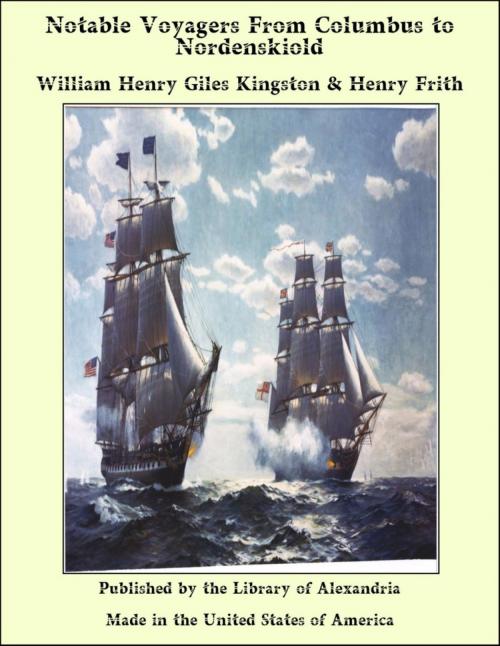Notable Voyagers From Columbus to Nordenskiold
Nonfiction, Religion & Spirituality, New Age, History, Fiction & Literature| Author: | William Henry Giles Kingston, Henry Frith | ISBN: | 9781465553249 |
| Publisher: | Library of Alexandria | Publication: | March 8, 2015 |
| Imprint: | Language: | English |
| Author: | William Henry Giles Kingston, Henry Frith |
| ISBN: | 9781465553249 |
| Publisher: | Library of Alexandria |
| Publication: | March 8, 2015 |
| Imprint: | |
| Language: | English |
In the year 1486 a council of learned professors of geography, mathematics, and all branches of science, erudite friars, accomplished bishops, and other dignitaries of the Church, were seated in the vast arched hall of the old Dominican convent of Saint Stephen in Salamanca, then the great seat of learning in Spain. They had met to hear a simple mariner, then standing in their midst, propound and defend certain conclusions at which he had arrived regarding the form and geography of the earth, and the possibility, nay, the certainty, that by sailing west, the unknown shores of Eastern India could be reached. Some of his hearers declared it to be grossly presumptuous in an ordinary man to suppose, after so many profound philosophers and mathematicians had been studying the world, and so many able navigators had been sailing about it for years past, that there remained so vast a discovery for him to make. Some cited the books of the Old Testament to prove that he was wrong, others the explanations of various reverend commentators. Doctrinal points were mixed up with philosophical discussions, and a mathematical demonstration was allowed no weight if it appeared to clash with a text of Scripture or comment of one of the fathers. Although Pliny and the wisest of the ancients had maintained the possibility of an antipodes in the southern hemisphere, these learned gentlemen made out that it was altogether a novel theory. Others declared that to assert there were inhabited lands on the opposite side of the globe would be to maintain that there were nations not descended from Adam, as it would have been impossible for them to have passed the intervening ocean, and therefore discredit would be thrown on the Bible.
In the year 1486 a council of learned professors of geography, mathematics, and all branches of science, erudite friars, accomplished bishops, and other dignitaries of the Church, were seated in the vast arched hall of the old Dominican convent of Saint Stephen in Salamanca, then the great seat of learning in Spain. They had met to hear a simple mariner, then standing in their midst, propound and defend certain conclusions at which he had arrived regarding the form and geography of the earth, and the possibility, nay, the certainty, that by sailing west, the unknown shores of Eastern India could be reached. Some of his hearers declared it to be grossly presumptuous in an ordinary man to suppose, after so many profound philosophers and mathematicians had been studying the world, and so many able navigators had been sailing about it for years past, that there remained so vast a discovery for him to make. Some cited the books of the Old Testament to prove that he was wrong, others the explanations of various reverend commentators. Doctrinal points were mixed up with philosophical discussions, and a mathematical demonstration was allowed no weight if it appeared to clash with a text of Scripture or comment of one of the fathers. Although Pliny and the wisest of the ancients had maintained the possibility of an antipodes in the southern hemisphere, these learned gentlemen made out that it was altogether a novel theory. Others declared that to assert there were inhabited lands on the opposite side of the globe would be to maintain that there were nations not descended from Adam, as it would have been impossible for them to have passed the intervening ocean, and therefore discredit would be thrown on the Bible.















